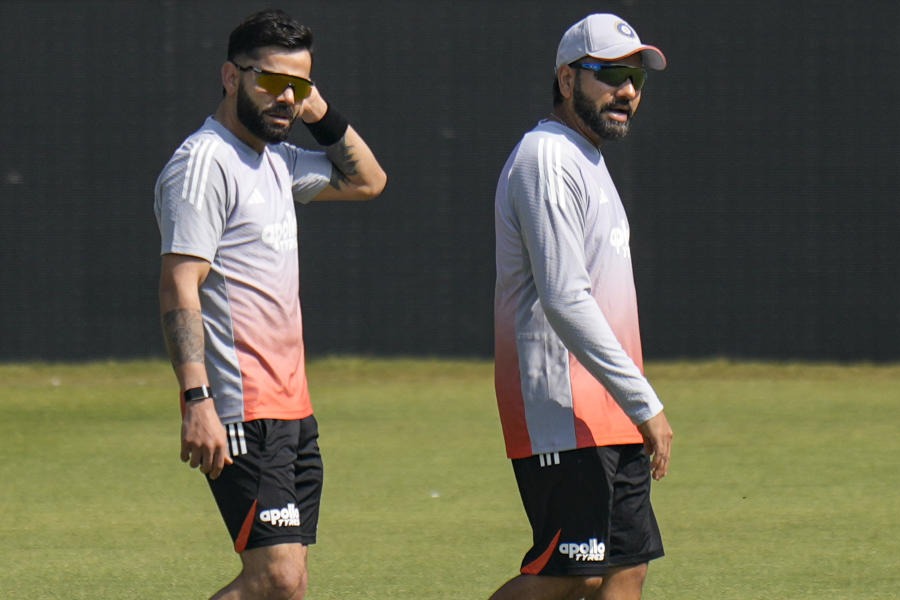 |
| Pauline at the piano |
A “floating population” with “profound buoyancy” in music, Aroha choir defines the phrase “unity in diversity” best.
The name Aroha comes from Sanskrit which means the “gathering of knowledge” and “the ascending scale”, and its 20 singers (11 females and nine males) comprise music lovers from Meghalaya, Assam, Manipur, Mizoram and Nagaland.
The choir members are soloists of an amazingly eclectic variety of genres — Western classical, operatic, gospel, jazz, Indian classical, indigenous folklore and traditional, popular, blues and more. What binds them is a deep love for harmony.
These talented musicians are led by their artistic director and conductor, Pauline Warjri, who holds a licentiate from Trinity/Guildhall School of Music, London, and has an enormous experience in music. She has written for solo piano, voice, choirs, jazz band and other instruments (Western and Eastern).
What is unique about the choir is that most of them are soloists in their own right. Pauline has collaborated with musicians from Germany, Hungary, the United States, and toured Poland, England and Switzerland with the Shillong Boys’ Choir and with her brother, pianist Neil Nongkynrih.
On her return to Shillong in 2008, Pauline founded Aroha Choir and the Aroha Children’s Choir, besides founding the Aroha Music School.
According to Pauline, Aroha is a group of ordinary people who are learning many things day by day — what it means to be human, why God gave them the gift of music, the purpose and meaning of life, the gift of compassion and inclusiveness.
Their music has touched and inspired many. In all of their endeavours, they are discovering that music, and indeed all art, are not merely for entertainment. First and foremost, their music is to the praise and worship of God, and the Aroha singers have made a conscious decision to build society through their art.
Excerpts from the interview with Pauline Warjri:
How did Aroha come into the picture? What was the idea and objective behind Aroha?
Pauline: I have always had a fascination for harmony and a love for the human voice.
Having directed choirs and singing groups since my teenage years, forming Aroha was the most natural thing to do on my return to Shillong in 2008. It started off as a desire to create music. The picture and the objective that emerged and continues to emerge is to build society, inspire other artistes through our hard work and dedication. It takes a lot of willpower, time, energy and skill to work as a team.
 |
| Pauline with Bill Wurtzel |
Please tell us something about the choir’s first live performance.
Pauline: We did a kick-off fund-raiser for the centenary celebration for my school Loreto Convent in 2008. With just two months to prepare from scratch, the choir did amazingly well. (Some had never been on stage before.) We managed to put in money into a then empty Loreto Alumni coffer (There is a decent video of the performance).
And the other important performances so far?
Pauline: It depends on what you mean by “important”. We have sung before MPs of the country, the Prime Minister himself, for the launching of a TV channel, for dignitaries of the state and other states. We have performed with a jazz band from Germany and artistes from other countries. I will never forget what my choir said to me after we performed for a charity gathering at Shillong Club: 'The rapport with the audience was electric. We'd rather sing for free for these kinds of people rather than for important people who do not understand nor appreciate your music'.
One milestone was the premiere of U Ktien at the Soso Tham auditorium in 2009. I wrote an oratorio in the Khasi idiom for choir and jazz band. An oratorio is as demanding as an opera (but does not require the acting in it) and my choir loves all the songs in it.
However, it takes time to mature as a choir in singing such genres and now Aroha is just beginning to mellow in this role. It will take time for the public to appreciate this kind of music as they are exposed to just popular and easy listening music.
What’s the choir’s genre of music? Any special innovation to give music a new definition?
Pauline: My choir has an eclectic array of music from Western classical, to jazz, gospel, spiritual, popular (sixties till date rock included), Khasi folklore, some Hindustani, Rabindrasangeet and an amalgamation of northeastern folklore. I cannot dare to claim innovations, but I love fusing Western and Eastern. It comes naturally to me. In our repertoire we are working on a fusion between Bharatanatyam and song. One of my sopranos, Antara Choudhury, is a Hindustani singer as well as a dancer. It is an exciting venture.
Any music album so far? Please tell us about it.
Pauline: We are working on it. Recording takes time and money. It will be a mixed album from the vast repertoire that we have.
 |
| Pauline with the choir |
How about Khasi songs? Is there a blend between Khasi and Western music?
Pauline: I am interested in Khasi folklore as a genre. I have arranged and composed quite a few songs myself. This is an area I am just bursting to develop and explore.
There can be a blend between any genres, but it must be done skilfully. The world has opened up so much that we see amazing artistic results these days.
How has Aroha evolved over the years?
Pauline: We have grown as a family. We have learned to love one another, bear with each other, live with each other's faults and also been inspired by each other's good points.
We laugh a lot and have standard Aroha jokes. It helps ease the tension and tiredness. We love good food and always have fellowship around the table when we practise. We give each other space to pursue studies, perform as soloists but we have managed to stick together as a choir. We pray together and meditate on burning issues like just governance and racial issues. Aroha is a good platform because we come from so many communities and faiths. We have learned to respect each other’s cultures.
 |
What challenges do you face in training the young boys and girls and how difficult is it to put up a performance?
Pauline: Punctuality or the lack of it is a national disease. It has filtered from the top to our youngsters. I have to get the parents on board to tackle this menace. Another problem is not following up a task to its logical completion. Many have found me too tough but the ones who have stayed are learning to work hard. They'd better! I hope this is not a sweeping statement, but as a people we are afraid of hard work and commitment. In my opinion, this is the root of the many problems we have in our society.
Putting up a performance in terms of getting a repertoire ready is never a problem for Aroha.
Sponsorship for a big concert is always a big problem and I do not like to beg for money if I can help it. Holding small concerts for genuine music lovers is a delight for me and I hope to do more of these in the future.
Your favourite song performed by Aroha so far?
Pauline: This is a difficult question. We are artistes who love deeply and feel deeply. We sing songs of depth, like Mynngkong, In the Beginning. One of my leading sopranos Ellerine Diengdoh knows it better than I do. What was there in the beginning? “U la don U Ktien” that answers a deep question about the origin of life. There was God. He was and is THE WORD. He is a communicator. Communication is the key.
There are sacred songs like There is none like you that moves us to worship God. Then we do fun songs like O Darling from the Beatles or In the mood by Red Garland or Pat Boone’s Speedy Gonzales which give a lot of scope for improvising, belting and some humour. It's almost like every song is a favourite.
What are your future plans?
Pauline: Aroha remains a floating population. Some of us are married; some are going outside the state to study, some have taken leave for doctoral research etc, so I have to plan as and when the seasons occur. After our Swiss trip in June, I plan to go on a long break.










